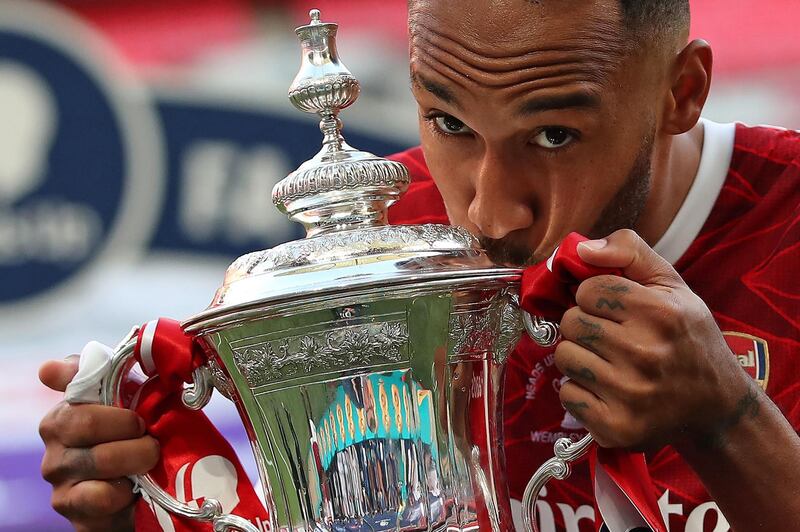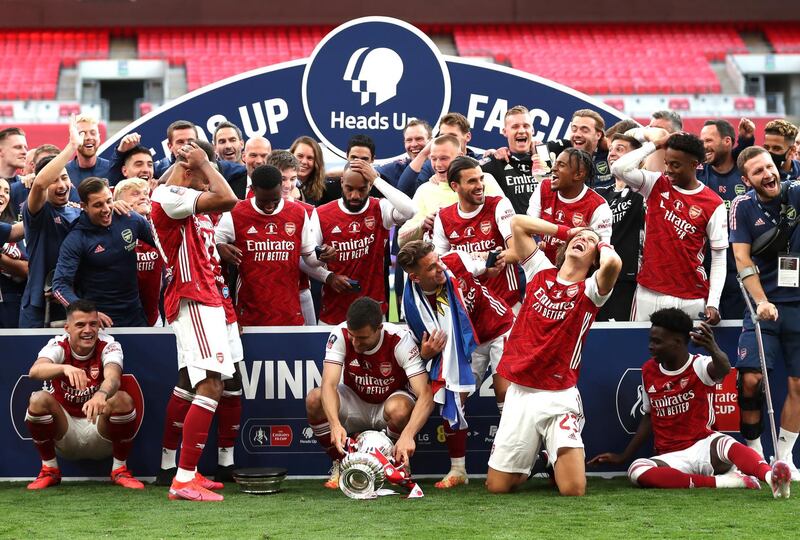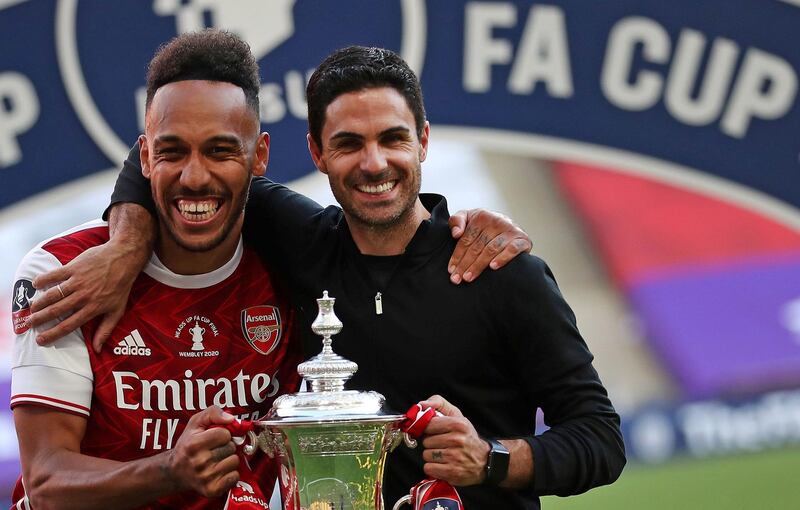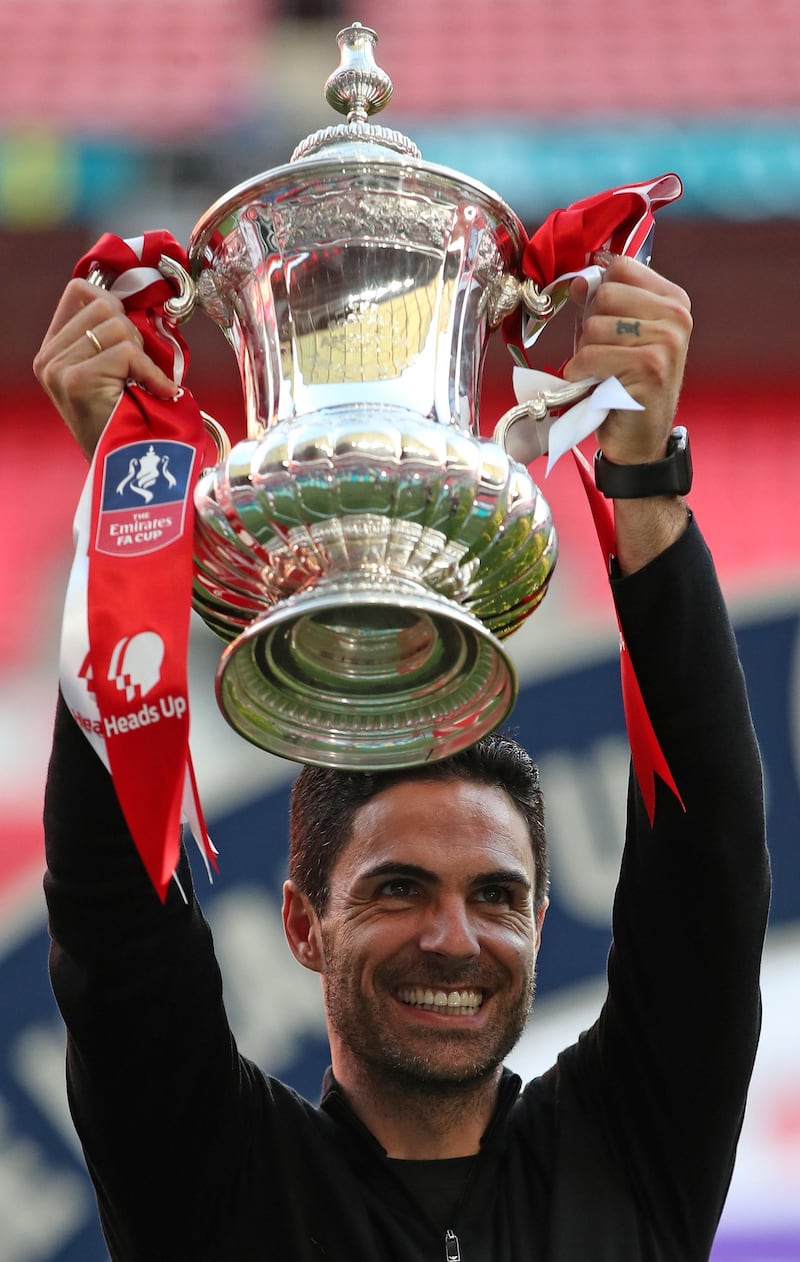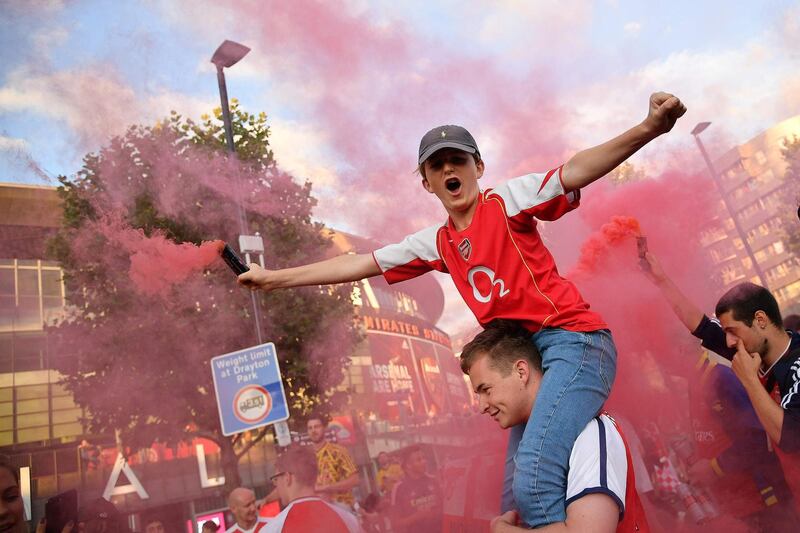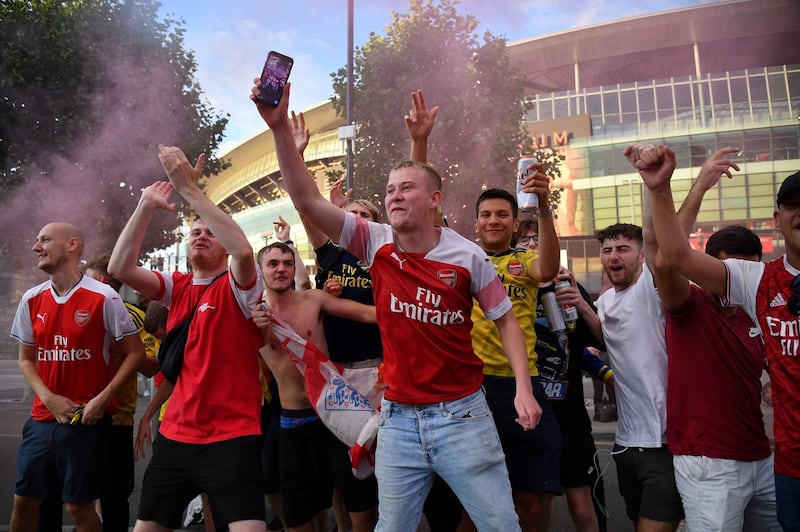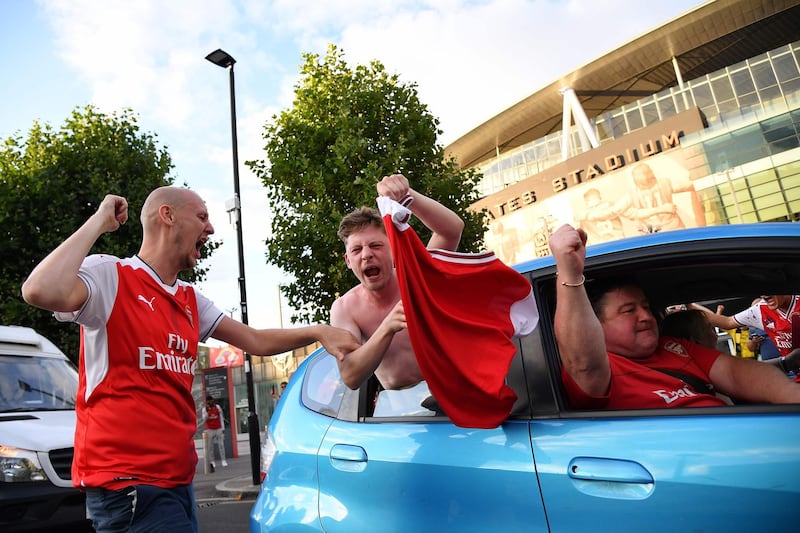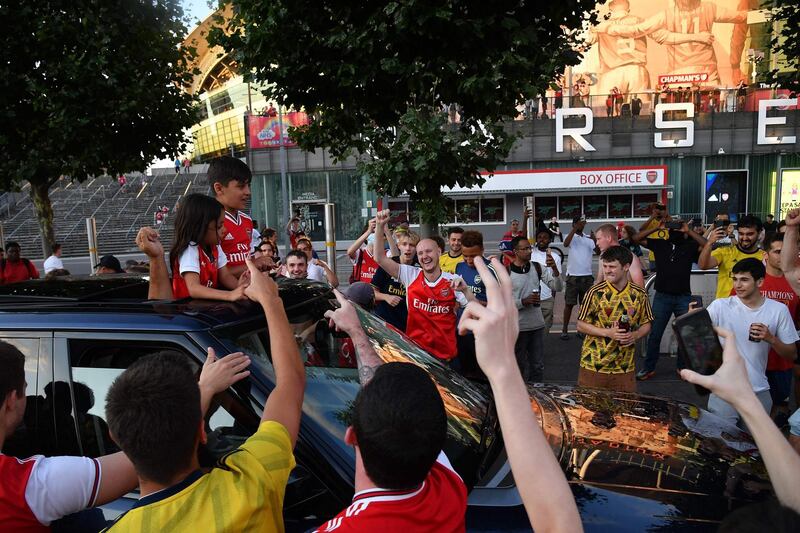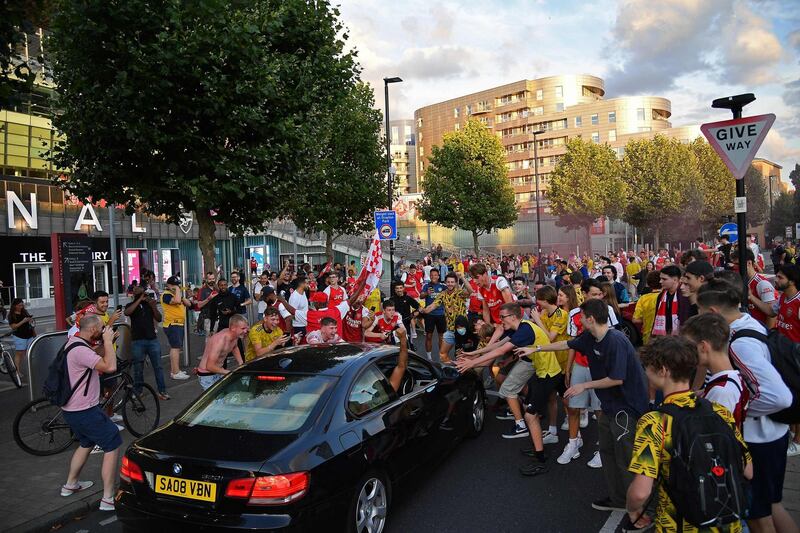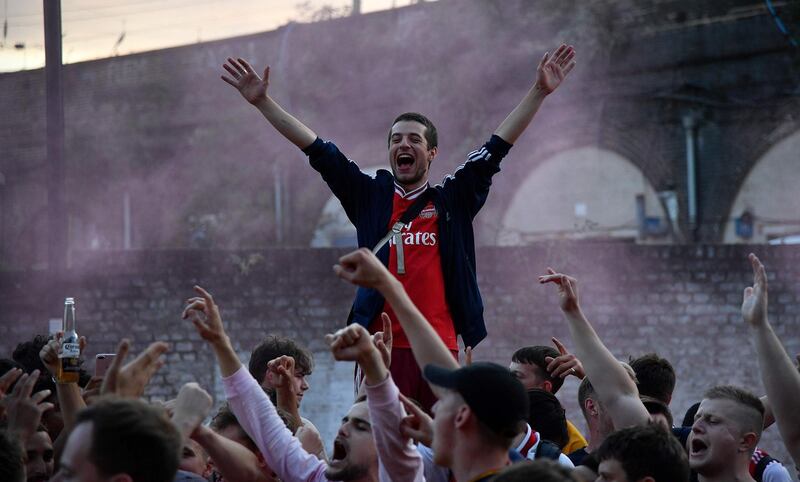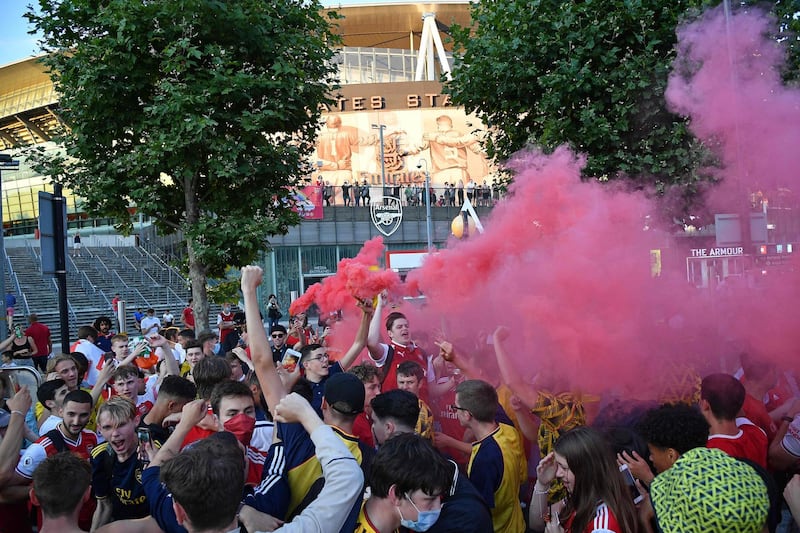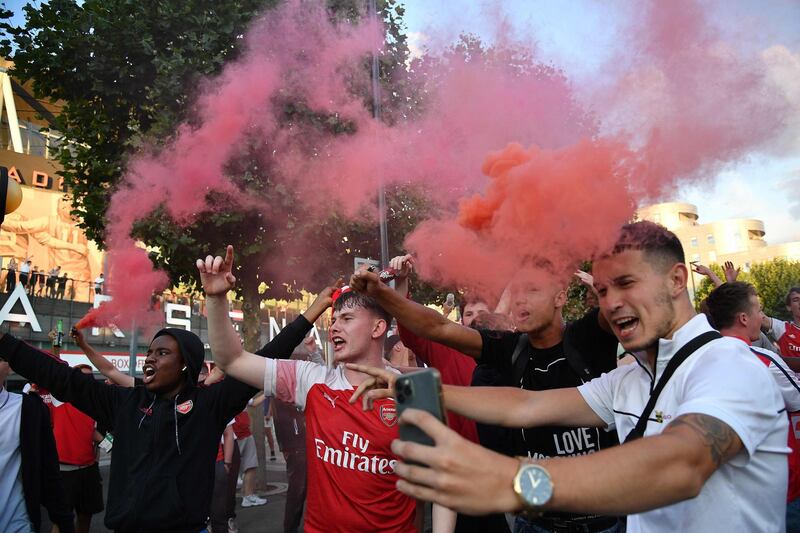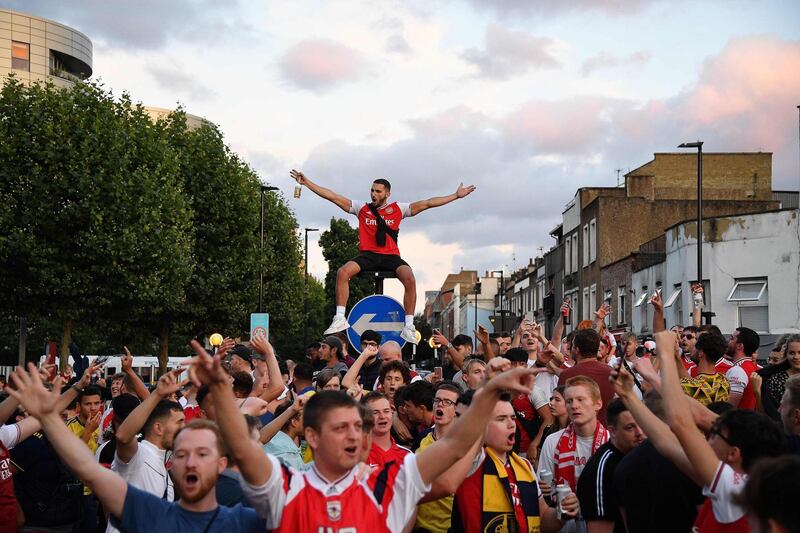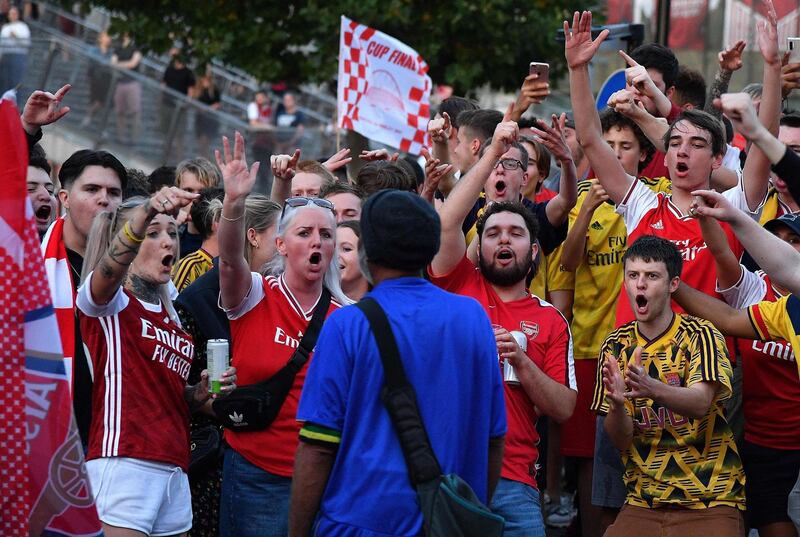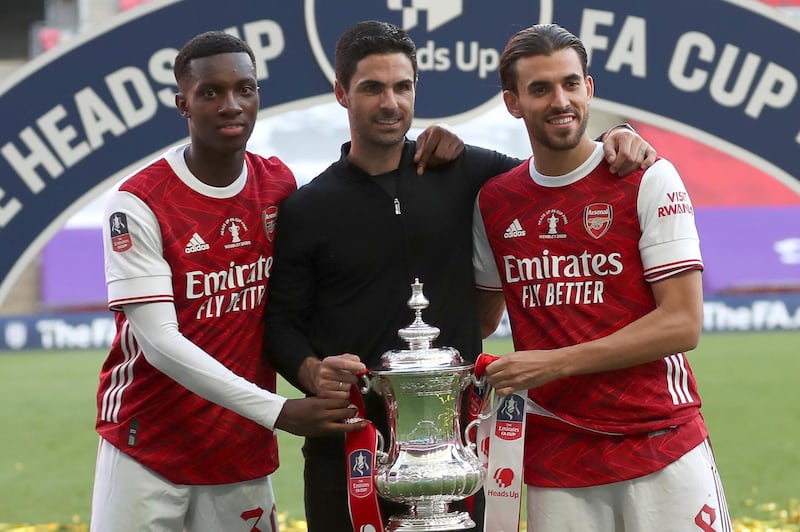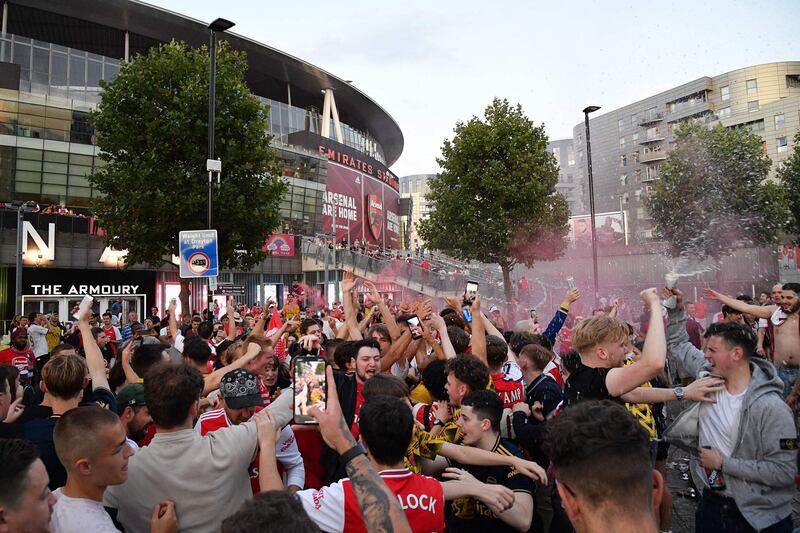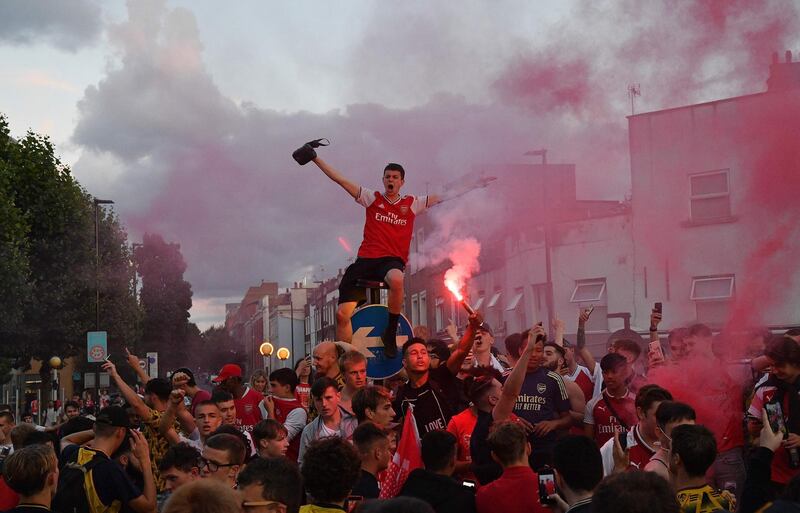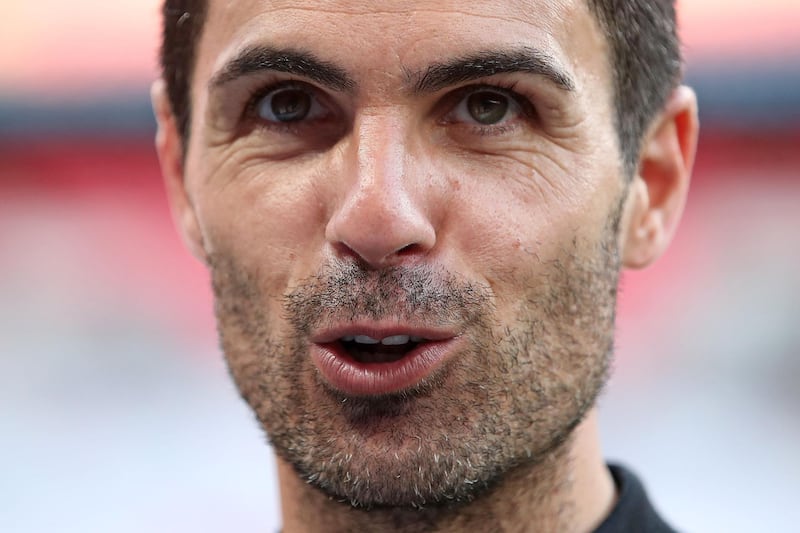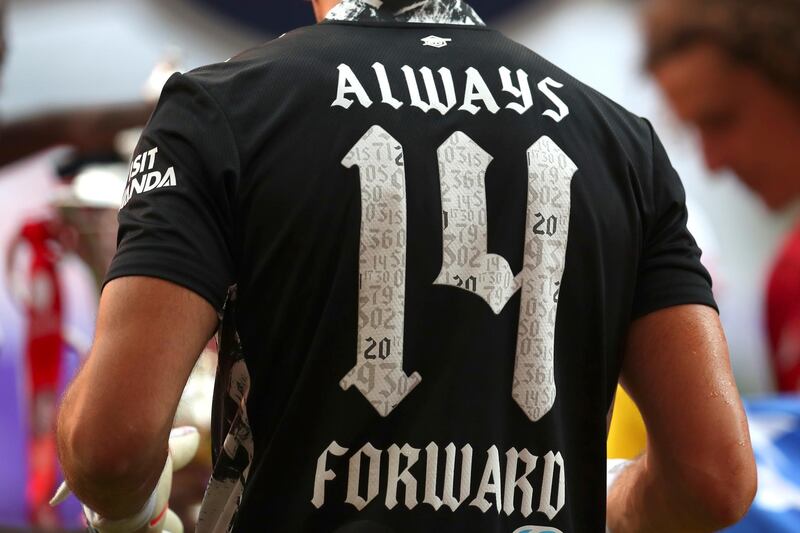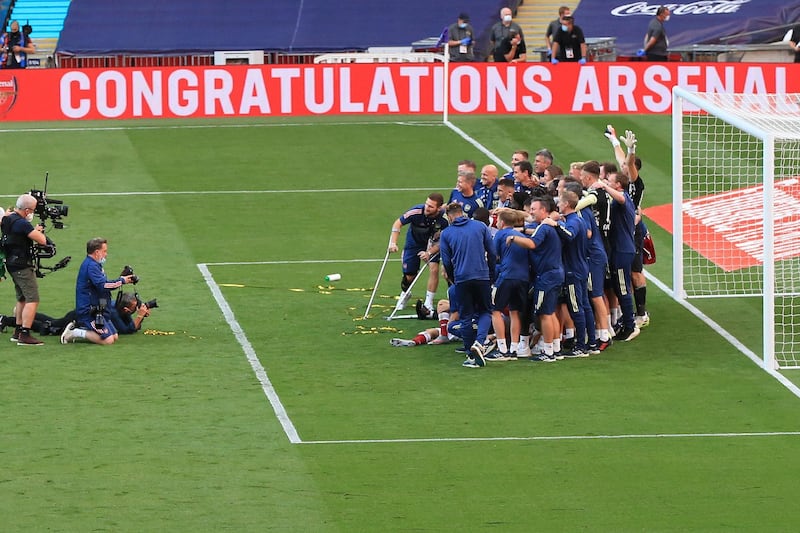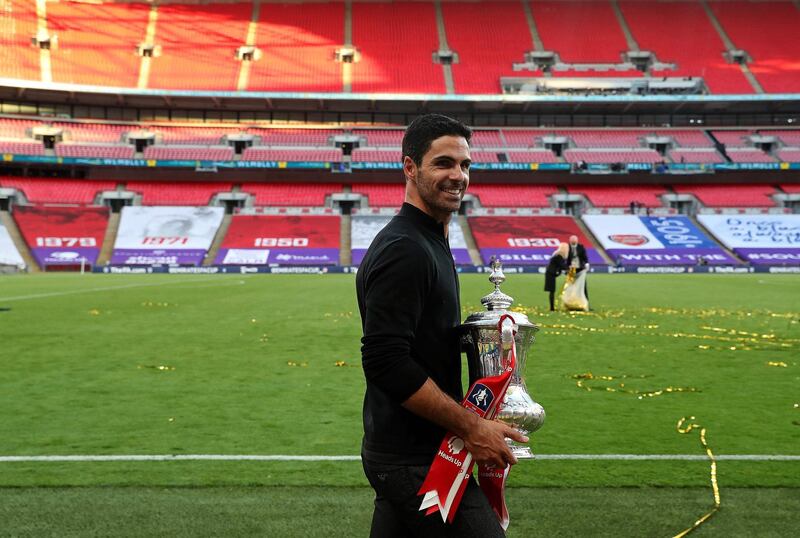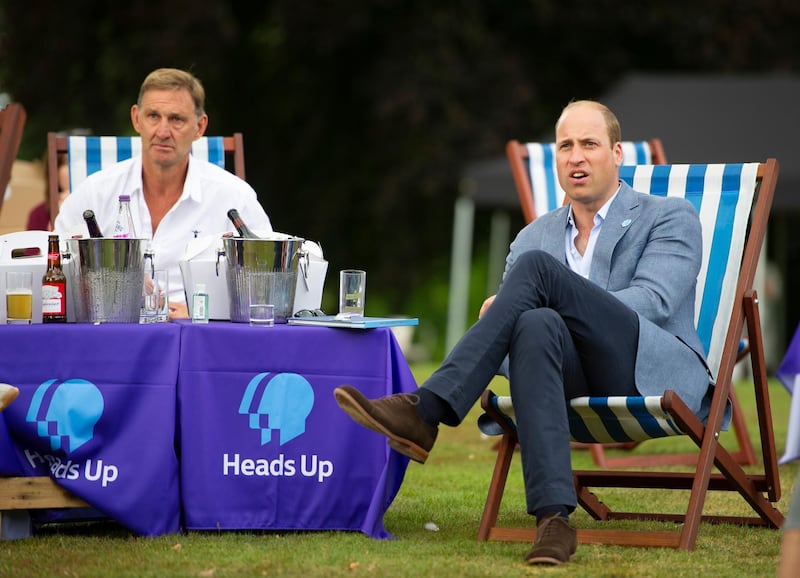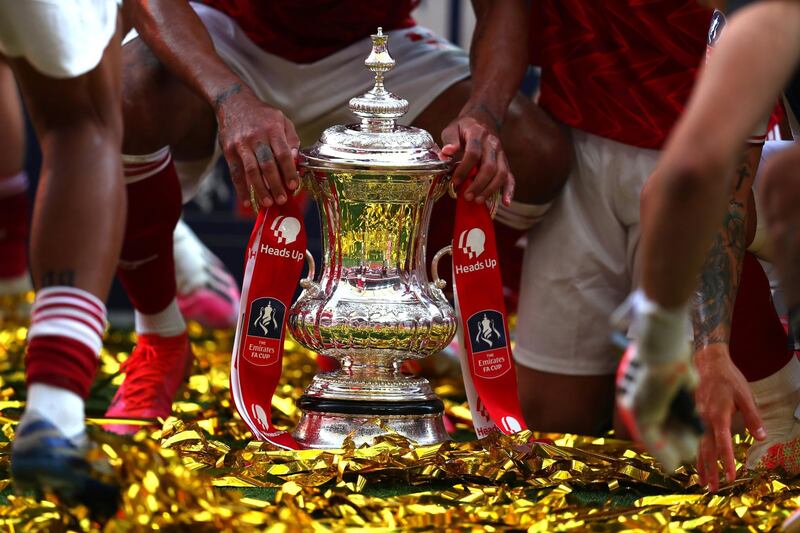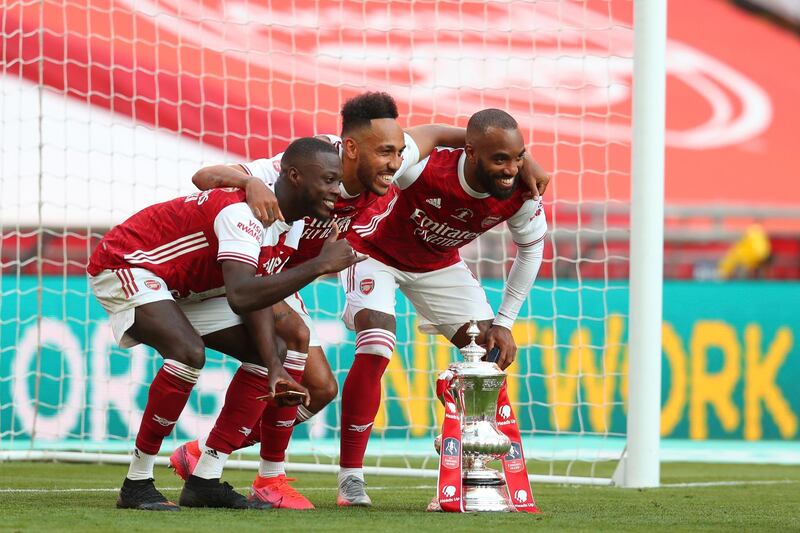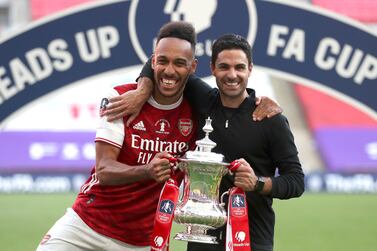The stylish superiority was confined to the 90 minutes. Thereafter, Pierre-Emerick Aubameyang dropped more trophies than most Arsenal captains of the 21st century have lifted, but Mikel Arteta could afford to smile about the forward’s ungainly attempt to get to grips with the FA Cup.
“He needs more experience with trophies,” smiled a manager who won one within eight months of his appointment.
Arsenal’s season, like its predecessor, finished in a final against Chelsea. In each case, the prize was greater for north London than west.
This time, Arsenal grasped it. Fourteen months earlier, a second-half capitulation and a 4-1 loss in the Europa League final cost them Champions League football. On Saturday, once again, Chelsea knew they were bound for the premier continental competition. Defeat would have meant that, for the first time in a quarter century, Arsenal were not in any. This time, the second half produced a stirring win.
In a world of uncertainty, it is hard to quantify the value of a Europa League spot. Perhaps it is worth £40 million (Dh192m), though, and with Aubameyang’s contract expiring in 2021, those added funds could be invaluable in extending his deal. “I want to build the team around him,” said Arteta, and progress could be destroyed by the departure of the one truly world-class player in his side.
Not since Ian Rush in 1986 had anyone scored a double in both the semi-final and final of the FA Cup and Aubameyang deserves to be bracketed with the greats. His last five seasons have produced 170 goals and, at 31, a speedster shows no signs of slowing down.
Arteta sounded confident of keeping him, Aubameyang more non-committal. Yet his tweet of the pair of them holding the trophy was captioned simply: “My manager!!!!”
Those sentiments may be echoed in the dressing room and the fanbase, the four exclamation marks illustrating his impact. In five games, Arteta has beaten Liverpool, Manchester City and Chelsea, imbuing his side with resolve and displaying his own tactical nous, not least in the first-half drinks break.
Arsenal’s wins came with 31, 29 and 40 per cent of possession respectively. Pep Guardiola’s protégé has had to abandon some of his mentor’s methods. It has required fresh ideas to engineer alchemy. With notable exceptions like Aubameyang, Arsenal can appear the unlikely lads.
My manager !!!!! https://t.co/uMpL68BWnl
— AUBA⚡️ (@Auba) August 1, 2020
Granit Xhaka was the deposed captain who was despised by some supporters. Arteta rehabilitated him. “He turned it around and gave me a second chance,” the Swiss reflected.
Ainsley Maitland-Niles had started once in 18 games, seemingly hankering after a midfield role no one afforded him, before Arteta brought him out of storage and reinvented him as a left wing-back in the semi-final against City. It was a role he reprised in the final, exploiting the room behind Chelsea’s wing-backs.
Emi Martinez was Arsenal’s oft-overlooked longest-serving player before Bernd Leno was injured. He finished the season with the highest save percentage of any Premier League goalkeeper to stop at least two shots.
David Luiz veered erratically between liability and colossus and if no one can say with any confidence that extending his contract will not bring further errors, Arteta made the most of a bad situation by trusting the biggest character in his defence.
🏆🏆🏆🏆🏆🏆🏆🏆🏆🏆🏆🏆🏆🏆#HeadsUpFACupFinal @Arsenal pic.twitter.com/wIfd9hCerc
— Emirates FA Cup (@EmiratesFACup) August 1, 2020
Kieran Tierney has looked a class act, whether as centre-back, left-back or wing-back. So, too, Dani Ceballos as Xhaka’s sidekick, though he illustrates the issues at Arsenal. Securing a loanee’s signature for another season ranks among many priorities.
Defence should be one even though, with William Saliba arriving, the substandard Sokratis Papastathopoulos can be deemed surplus to requirements. So, too, the exiled Matteo Guendouzi, who at least has some resale value, and the resolutely unshiftable Mesut Ozil.
Arteta has not picked on reputation or price tag, but he has proved open-minded. Alexandre Lacazette was among the axed, but was restored to the side and responded to uncharacteristic requests by trying to snuff out Ilkay Gundogan in the semi-final and Jorginho in the final. The Frenchman passed the attitude test. So have others.
“We had to change the energy and the mentality,” Arteta said on Saturday. He has done that. Arsenal feel more upbeat, more optimistic.
Their lowest league finish in 25 years nonetheless looks a springboard for something. It is a reminder of the difference a manager can make and, already, it feels as though Arteta’s first trophy will not be his last. He inherited a club at a low ebb, one which had wasted 18 months under Unai Emery. The question now is how far he can take them.
